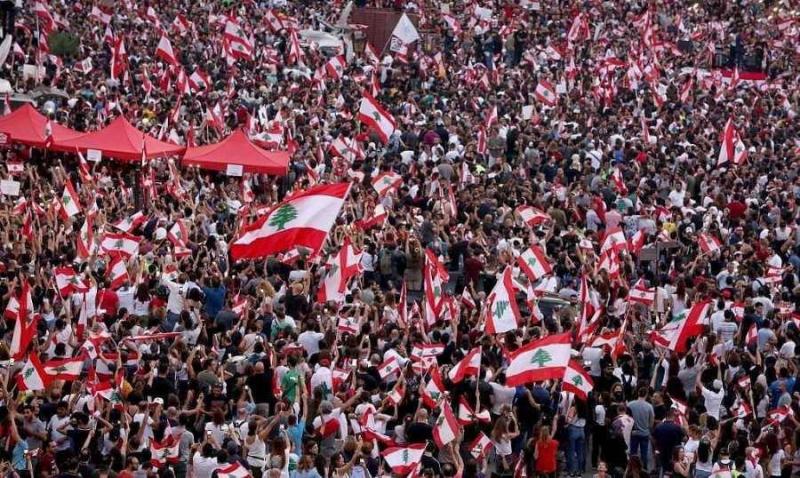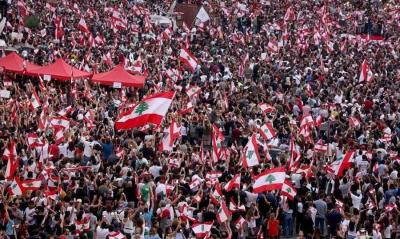If the beginning of the cooling of the Beirut Port silos, after more than two weeks of continuous fires, represented the pinnacle of "achievements" for the Lebanese state in this barren time, then the return of protest activity to the streets is no longer surprising after the complacency of the Lebanese people about the "revolution" astounded much of the world. The signs of protest movements and sit-ins that took place yesterday in several areas, along with the attempt by a group of protesters to storm the government palace in downtown Beirut due to the worsening living, social, and economic conditions, seemed "less than expected" given the complete political stalemate currently characterizing the authority, which appears to be a total surrender to the paralysis of forming a new government and ensuring that presidential elections occur on schedule, which early warns of a return to the destructive experiences of vacuity.
Moreover, what has transpired in recent days on the judicial and security front, revealing alarming lapses that exposed the state’s weak flank in the final weeks of the current presidency, has plunged the deteriorating situation in the country into a highly dangerous maze. It has served as an additional incentive for the employees who have been striking for over a month, as well as sparked citizens to take to the streets amid the exposure that revealed the decay of the state and the entangled practices, violations, and transgressions concealing the explosive political use of the judiciary and security in calculations that could produce repercussions that are difficult to contain, according to "An-Nahar."
In any case, it has become clear that the collapse of the last bets on the possibility of resuming efforts to form a new government has compelled the acceleration of legislative parliamentary work. Therefore, the meeting of the General Assembly of the Parliament next Tuesday in a legislative session will serve as a mere formal restoration of the crumbling authority scene. Additionally, a factor carrying a "positive promise" emerged with Deputy Speaker Elias Bou Saab’s hint yesterday about new progress in the U.S. mediation in the maritime border negotiations between Lebanon and Israel, announcing that U.S. mediator Amos Hochstein would visit Beirut in less than two weeks. This coincided with a warning from the United Nations regarding the threat of paralysis looming over Lebanon.
However, the presidential envoy of President Emmanuel Macron, Ambassador Pierre Duquesne, appeared more optimistic after his meetings yesterday with the three presidents and officials, as well as with the Association of Banks in Lebanon, compared to his previous visit a few weeks ago, as he stated in front of a group of journalists at the Pine Palace in the presence of French Ambassador Anne Grillo. He revealed in response to "An-Nahar" that he carried a message from President Macron reaffirming his supportive stance towards Lebanon, which is a steadfast position that has not changed. He confirmed that there is international consensus among the permanent members of the Security Council, including Russia and China, regarding Lebanon and the importance and necessity of supporting it. He also emphasized that Lebanon has a final opportunity represented by signing a program with the International Monetary Fund, which would provide the necessary financial support from the international community, posing the equation: either the fund or poverty and hunger.




